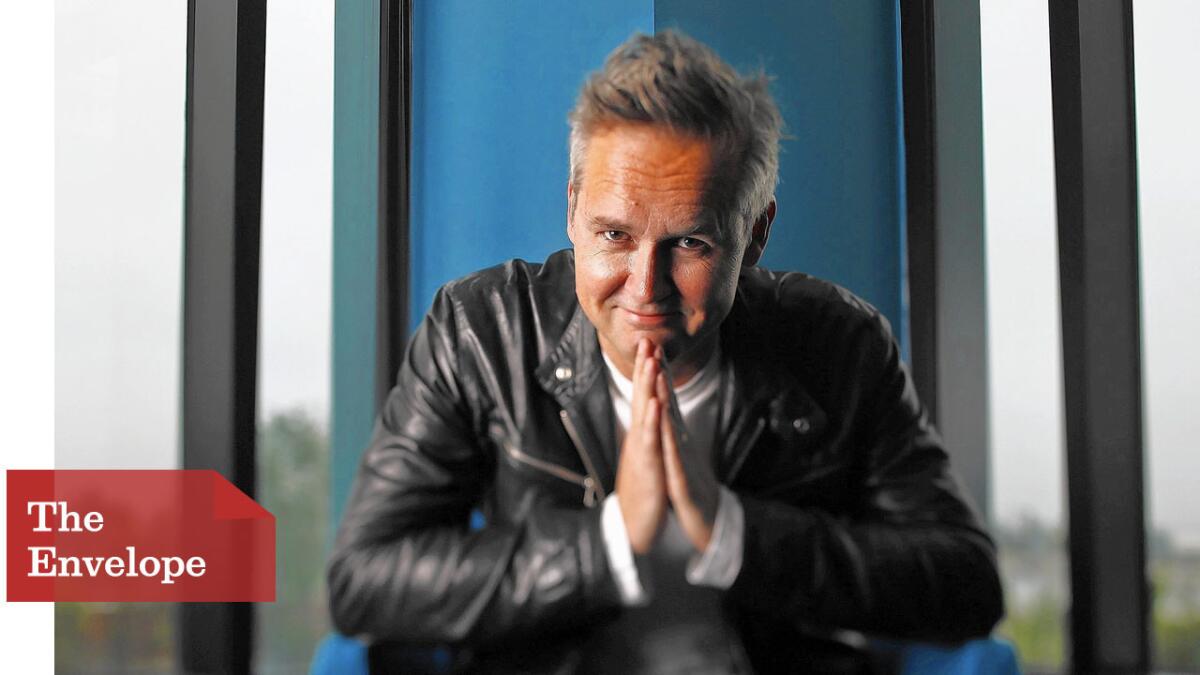Q&A: Amazon Studios chief on parents, grandparents and ‘Transparent’

- Share via
Amazon Studios President Roy Price comes from a family of creative risk-takers. His father, Frank Price, experimented with new program formats when he was the head of Universal Television and made some of the most memorable films of the 1970s and ‘80s as a studio chief, including the Academy Award-winning “Kramer vs. Kramer” and “Back to the Future.”
His grandfather Roy Huggins was the innovative TV writer responsible for “The Fugitive” and “The Rockford Files.” Price now has stepped shoulder-to-shoulder with that legacy with “Transparent,” the breakout comedy about a transgender woman and her adult children that rapidly put Amazon on the map as a programming player to be reckoned with. He talks about his roots and his rules in the rapidly changing TV landscape.
“Transparent” is so daring and different. Does it make it more challenging for you to get people’s attention going forward?
I think the way to do it is to just focus on staying with quality writing. Ordering a pilot of “Transparent” was an easy decision because when we read that script, the writing was fantastic. The characters were moving and real. It had to be made. We really have only one priority: Let’s find exciting people and material and let’s make it. Does it feel special? Is it worth remembering? Is it worth talking about? If we just keep doing that and don’t get distracted with other stuff, hopefully goodness will ensue.
You are unique in that you distribute your content through a retail site. Does that give you a lot of information about who is watching?
You definitely can see what they are watching as a whole. You have a lot of data to work with. You have a sense of whether people are responding to a show — are they watching a few episodes? Are they watching the whole thing? That can be helpful.
How deep can you go to get information?
We don’t ask you any demographic information other than where you send packages. If you’re a 50-year-old guy and you watch TV like a 14-year–old, we may recommend things for you that are uncharacteristic of your demographic. It’s all individualized.
Did you see a lift in views of “Transparent” when it won the Golden Globe?
Yes. It brought an awareness to a broader audience that may have not been [watching] on Amazon. We promoted that it won as well. People definitely responded to that.
You’ve been steeped in traditional Hollywood through your family. Your father was a TV executive and your grandfather created three series that went on to be classics. How does the way you operate today compare to the rules you learned growing up?
There are 82 things you had to bear in mind if you were running a network in [former NBC Entertainment President] Brandon Tartikoff’s time in 1983 that we don’t today.The current environment is sufficiently diverse that I think counterprogramming is much less significant. A lot of the issues that used to take a lot of people’s thinking and focus are not issues now. You’re more focused on the show. You’re focused more on customers and creators. You have to have the goal that every show is somebody’s favorite show and being sufficiently distinctive that you really stand out and be different.
Your grandfather’s show “The Fugitive” was considered a daring idea in its day. It was serialized and had an ending, which was considered a mistake because it was believed that the show would have no value in syndication. But it really was built for today’s TV.
You’re right. And there was something about the antihero that you can find in “The Fugitive” and to some extent “Maverick.” Roy Huggins was an innovator who really presaged some of the things that TV is focused on now.
What does your father think about the new TV world?
He thinks it’s exciting. He loves “Transparent.” He watches the shows. [As chief executive of Columbia Pictures,] he made “Tootsie,” and that was a different time. It had a whole different theme. That’s how things evolve.
You signed Woody Allen to a deal to make a series. Did you think about his global appeal when you signed him? There are statues of him in other countries because his work is so revered.
He has a strong international fan base, that’s for sure. We look forward to introducing the show to Woody Allen fans everywhere. That’s part of the excitement.
More to Read
The biggest entertainment stories
Get our big stories about Hollywood, film, television, music, arts, culture and more right in your inbox as soon as they publish.
You may occasionally receive promotional content from the Los Angeles Times.











